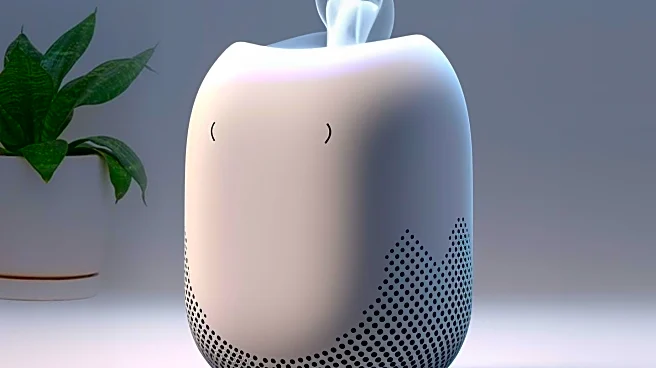What's Happening?
The Afloia Kilo air purifier is now available at a significant discount on Amazon, priced at $62, down from its usual $130. This model is designed to purify air in large spaces up to 1076 square feet, making it suitable for homes facing rising pollution levels. It features a three-stage filtration system capable of removing particles as small as 0.03 microns, capturing 99.9% of allergens and pollutants. The purifier operates quietly at 22 decibels, making it ideal for continuous use in bedrooms without disturbance. It also includes customizable settings for operation duration and a 7-color nightlight feature. The purifier is equipped with adjustable filter options, including regular, pet allergy, and antibacterial filters, which should be changed every 4 to 6 months for optimal performance.
Why It's Important?
As pollution levels increase globally, air purifiers are becoming essential household items to ensure cleaner indoor air quality. The affordability and efficiency of the Afloia Kilo air purifier make it accessible to a wider audience, potentially improving health outcomes by reducing exposure to airborne pollutants. This product can help mitigate health risks associated with poor air quality, such as respiratory issues and allergies. The availability of this purifier at a discounted price may encourage more consumers to invest in air quality improvement, contributing to better overall public health.
What's Next?
Consumers may see increased adoption of air purifiers as awareness of air quality issues grows. The market for air purifiers could expand, prompting manufacturers to innovate and offer more advanced features at competitive prices. As more households integrate air purifiers, there could be a noticeable improvement in indoor air quality, leading to potential reductions in health-related costs associated with pollution exposure.
Beyond the Headlines
The trend towards cleaner indoor air may also influence building design and urban planning, with increased emphasis on ventilation and air quality management. This shift could lead to new standards and regulations aimed at improving air quality in public and private spaces, reflecting a broader commitment to environmental health.









